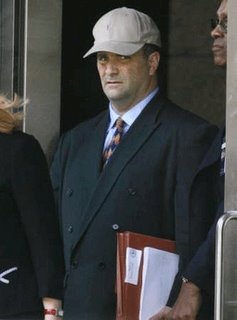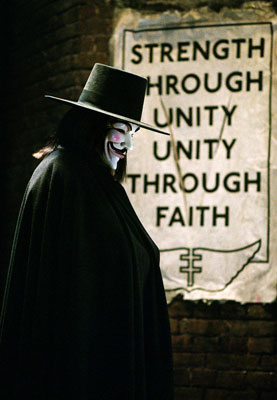The Gang's All Here!
All Rock n' Roll R.I.P. tributes are missing somebody, but this one is pretty damn close to having everyone. Can you think of anyone worth mentioning (besides Ricky Nelson and Stiv Bators), that isn't already here? I Dare ya'!
Thought-provoking clap-trap for the skeptic-minded
The Gang's All Here!
All Rock n' Roll R.I.P. tributes are missing somebody, but this one is pretty damn close to having everyone. Can you think of anyone worth mentioning (besides Ricky Nelson and Stiv Bators), that isn't already here? I Dare ya'!

 PEDOPHILIA CLUB PAYS ITS DUES
PEDOPHILIA CLUB PAYS ITS DUES
 WORDS TO LIVE (OR DIE) BY
WORDS TO LIVE (OR DIE) BY
 FIVE-PLUS YEARS FOR ABRAMOFF
FIVE-PLUS YEARS FOR ABRAMOFF
 Catholic majority approves of torture
Catholic majority approves of torture
 A modern-day fable
A modern-day fable
 Bush hypocrisy knows no bounds
Bush hypocrisy knows no boundsRockefeller 'blows whistle' on Bush
 Caspar Weinberger dies at 88
Caspar Weinberger dies at 88
 White House Chief of Staff Quits!
White House Chief of Staff Quits!Brain cell microchip a reality
 Do pop stars give birth doggie style? On bear-skin rugs?
Do pop stars give birth doggie style? On bear-skin rugs?
 IRAN STEPS UP NUCLEAR AGENDA
IRAN STEPS UP NUCLEAR AGENDA

 V for Vendetta: The IMAX Experience
V for Vendetta: The IMAX Experience
 Click on cartoon to enlarge
Click on cartoon to enlargeIn an extremely dangerous precedent, The Bush administration recently won an initial Supreme Court decision limiting the religious freedom of a church in New Mexico. The administration had been in a legal battle with the South American based
church over its use of Hoaska Tea in its religious ceremonies. The tea, which has been used for centuries in Brazil as a spiritual aid, contains naturally produced DMT, which when produced synthetically, is a controlled substance in the U.S.
The church beat a lower-court injunction but the Bush administration appealed and meanwhile flexed its establishment muscle by having Supreme Court Justice Stephen Breyer (on behalf of the entire Supreme Court) issue a temporary stay. The stay prohibited the church from performing its traditional religious tea ceremony until the matter was resolved.
To get an idea of what this must been like for this church—and the precedent that it sets—imagine a court-ordered ban on baptism or communion.
Although the supreme court just last month ruled the practice to be a legal religious ceremony and ruled any governmental interference as unconstitutional, it shows the two-faced religious bigotry of this administration especially when put up next to Rice's recent plea to Afghanistan. Does anyone need further proof that this administration is comprised of Christian right-winged zealots rife with their own hypocritical agendas?
 More wool over our eyes...
More wool over our eyes...
 China saves face...and backs, chests...
China saves face...and backs, chests...
 Holloway OD'd say police
Holloway OD'd say policeBUSH MAKES ME SICK!
 (click on document to enlarge)
(click on document to enlarge)VP Hotel Requirements (click on document to enlarge)
 MARCH 23-- The media has obtained a copy of Vice President Dick Cheney's standard "tour" rider, the document provided to hotels where Cheney will be bunking and lists how the Republican politician's "Downtime Suite" needs to be outfitted. While the vice president's requests are pretty modest, Cheney does like his suite at a comfy 68 degrees. And, of course, all the televisions need to be preset to the Fox News Channel. Decaf coffee should be ready upon his arrival along with four cans of caffeine-free Diet Sprite. And when Cheney is traveling with his wife Lynne, the second family's suite needs an additional two bottles of sparkling water. Mrs. Cheney's H2O should be either Calistoga or, curiously, Perrier, a favored beverage of French terrorism appeasers. The document, prepared by the vice president's advance team, was obtained after it was provided to a hotel employee prior to a Cheney visit. When we asked Cheney spokesperson Jenny Mayfield about the document's reference to gifts that hotels might leave in the suite for the vice president, she told us she was unable to address that question since she had not seen the "downtime requirements" rider. At the source's request, I've blacked out the handwritten name and Washington, D.C. phone number of a Cheney staffer. As for the notations regarding extra lamps, specific newspapers, and a carafe, it is unclear whether they were added by an advance team staffer or a hotel official.
MARCH 23-- The media has obtained a copy of Vice President Dick Cheney's standard "tour" rider, the document provided to hotels where Cheney will be bunking and lists how the Republican politician's "Downtime Suite" needs to be outfitted. While the vice president's requests are pretty modest, Cheney does like his suite at a comfy 68 degrees. And, of course, all the televisions need to be preset to the Fox News Channel. Decaf coffee should be ready upon his arrival along with four cans of caffeine-free Diet Sprite. And when Cheney is traveling with his wife Lynne, the second family's suite needs an additional two bottles of sparkling water. Mrs. Cheney's H2O should be either Calistoga or, curiously, Perrier, a favored beverage of French terrorism appeasers. The document, prepared by the vice president's advance team, was obtained after it was provided to a hotel employee prior to a Cheney visit. When we asked Cheney spokesperson Jenny Mayfield about the document's reference to gifts that hotels might leave in the suite for the vice president, she told us she was unable to address that question since she had not seen the "downtime requirements" rider. At the source's request, I've blacked out the handwritten name and Washington, D.C. phone number of a Cheney staffer. As for the notations regarding extra lamps, specific newspapers, and a carafe, it is unclear whether they were added by an advance team staffer or a hotel official.Witness comes forth in Holloway case
Televised Revolution
Chavez warns US, Takes up for Cuba
CHINA BECOMES THE NEW RUSSIA
Thomas gets to ask one question
 This is a 3-part column that was published on January 7, 2004.
This is a 3-part column that was published on January 7, 2004.